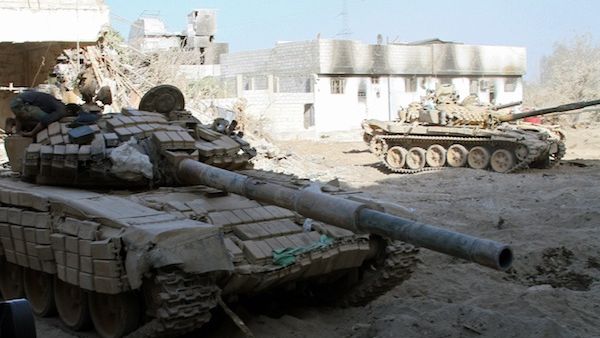Four hundred tonnes of weapons were smuggled into Syria from Turkey on Sunday in a bid to boost opposition capabilities, rebel sources told Reuters, following a suspected chemical weapons strike on rebel-held suburbs of Damascus last Wednesday.
The source told Reuters the Gulf-financed shipment, which came from the Turkish province of Hatay in the past 24 hours, was one of the single biggest shipments of weapons to reach rebel forces since the uprising against President Bashar Assad turned deadly more than two years ago.
"Twenty trailers crossed from Turkey and are being distributed to arms depots for several brigades across the north," Mohammad Salam, a rebel operative who witnessed the crossing from an undisclosed location in Hatay, told Reuters.
A senior official in the Gulf and Western backed Supreme Military Council, an umbrella group for rebel troops, confirmed the arms delivery, and said that weapons airlifts into Turkey have significantly increased since rebel held Sunni neighbourhoods and suburbs of the Syrian capital Damascus were allegedly gassed last Wednesday.
Syrian opposition sources say between 500 and well over 1,000 civilians were killed this week by deadly nerve gas fired by pro-Assad forces. The attack caused international outrage following video footage of young children killed by the alleged gas attacks went viral on the internet. It has increased calls abroad for military intervention after over two years of international inertia over Syria's conflict.
Syrian authorities sought to avert blame on Saturday by saying its government troops discovered chemical weapons in suburban Damascus tunnels frequently used by rebels. However, Western powers cited preliminary evidence indicating that troops loyal to the Syrian government were behind the chemical attack, and the United States is repositioning naval forces in the Mediterranean to give President Barack Obama the option of a military strike in Syria, should it be required.
Iran's foreign minister said the Syrian government had told Tehran it would allow U.N. inspectors to visit areas reportedly affected by chemical weapons, Iran's Press TV said on Sunday, according to Reuters. This follows hints made by Syrian minister of information Omran Zoabi that the UN team, already in Damascus, would not be allowed access to the chemical weapons site as it was not previously agreed on by the UN and the Syrian government.








